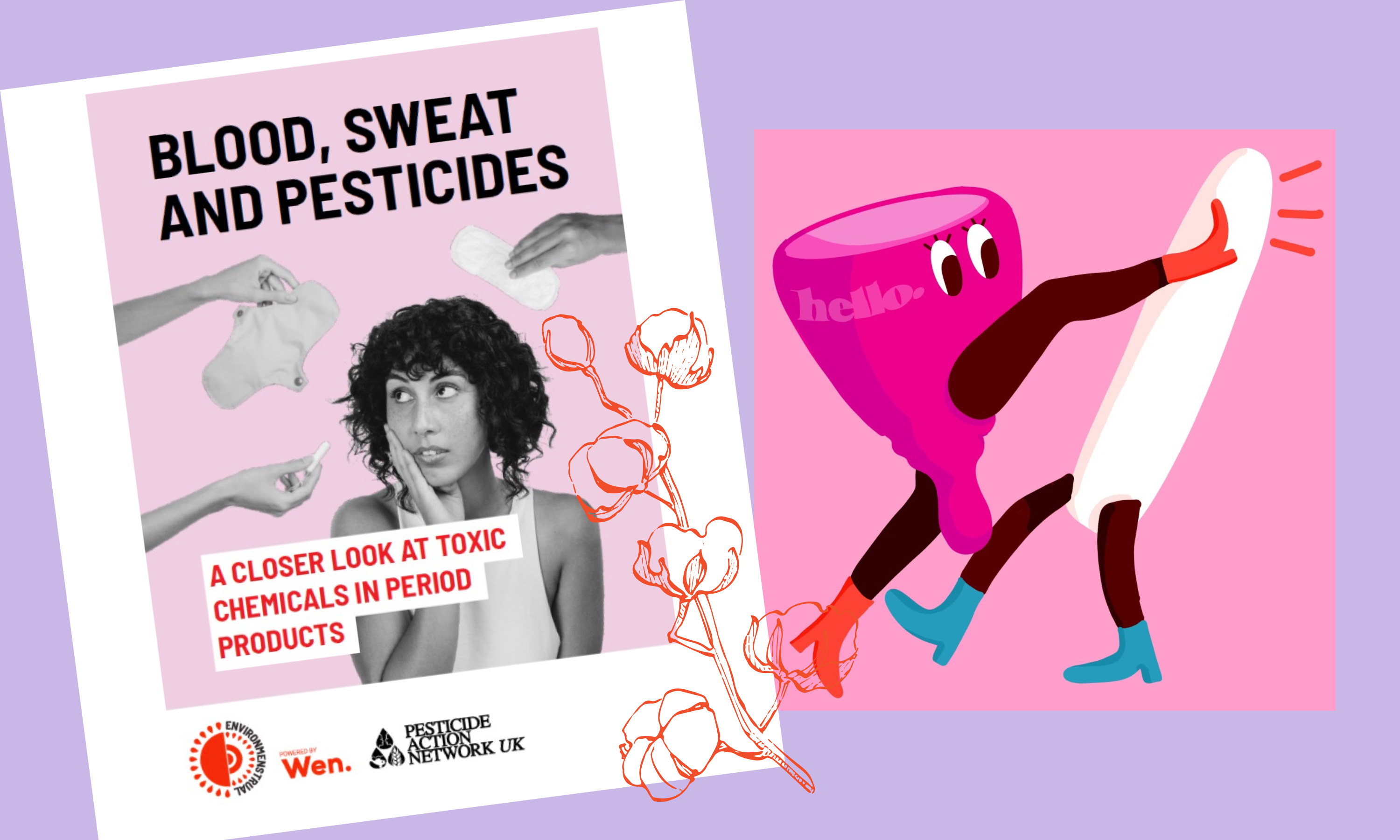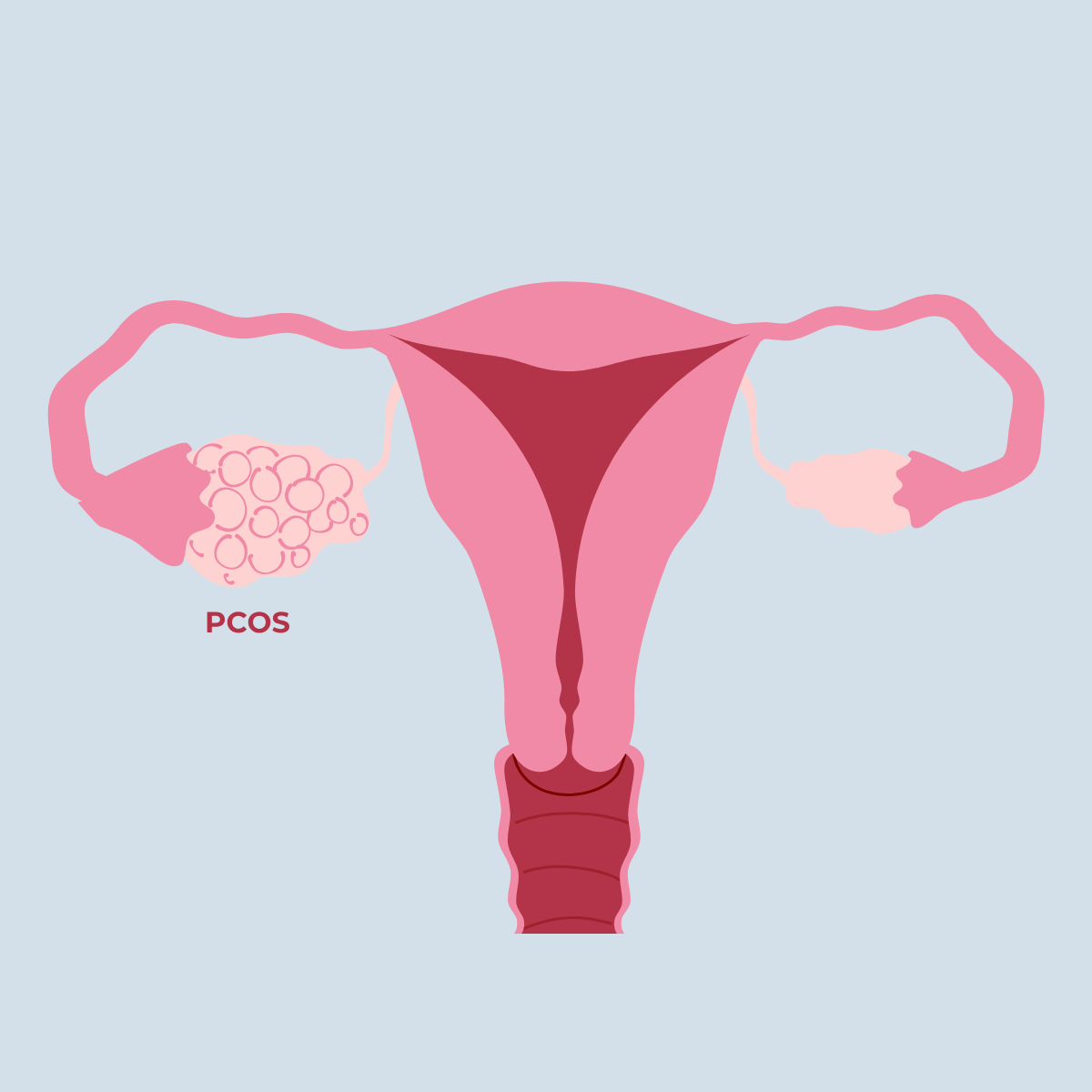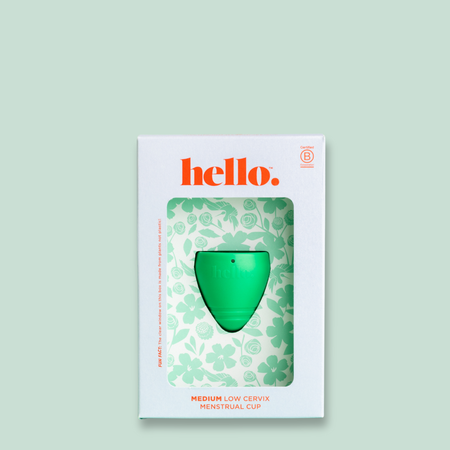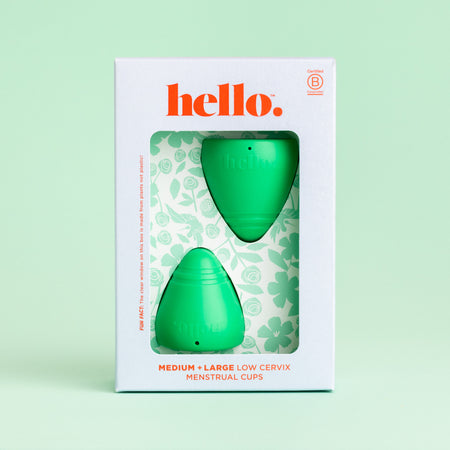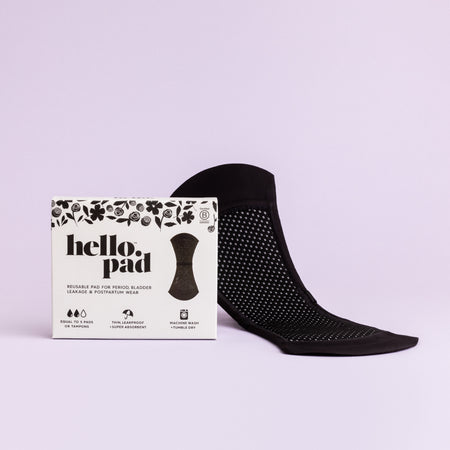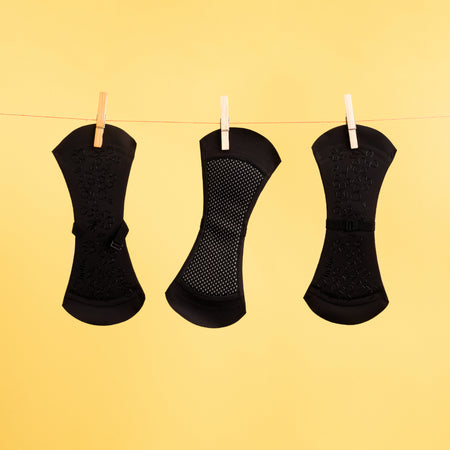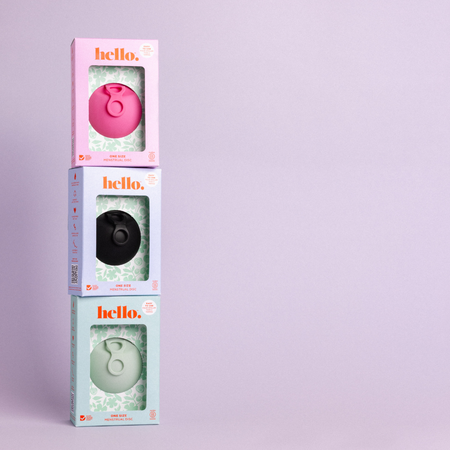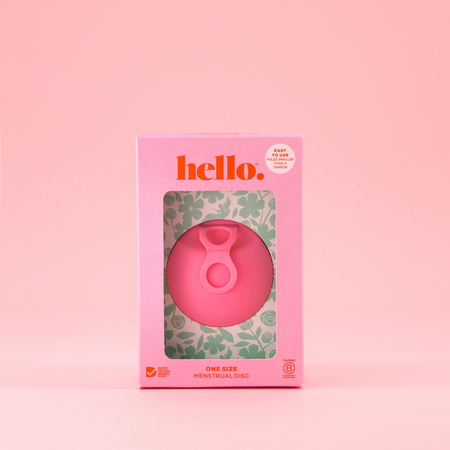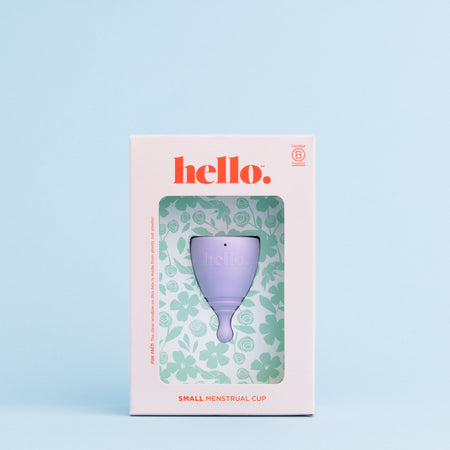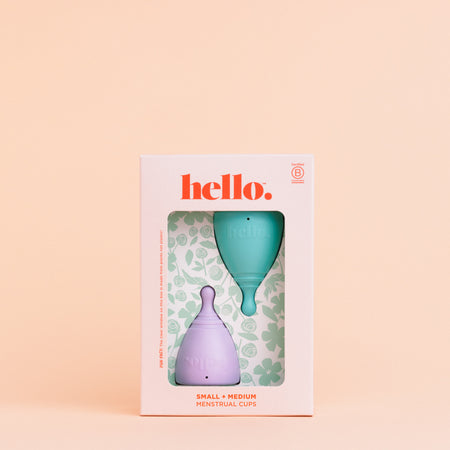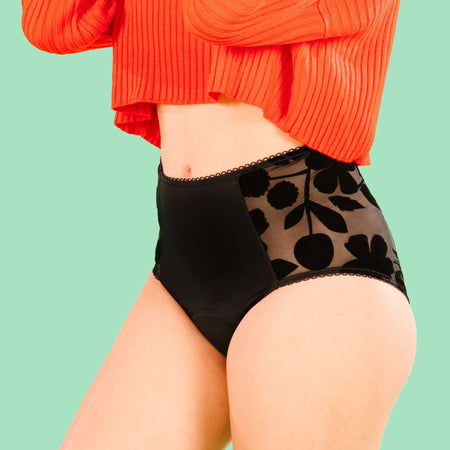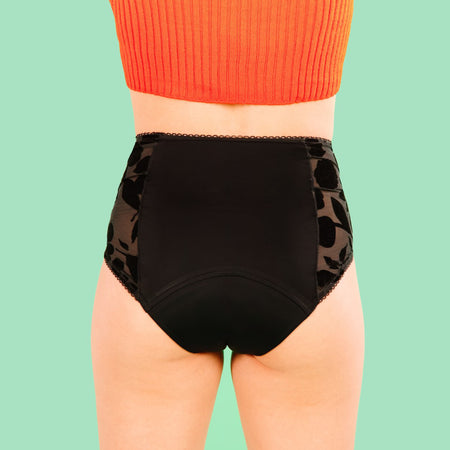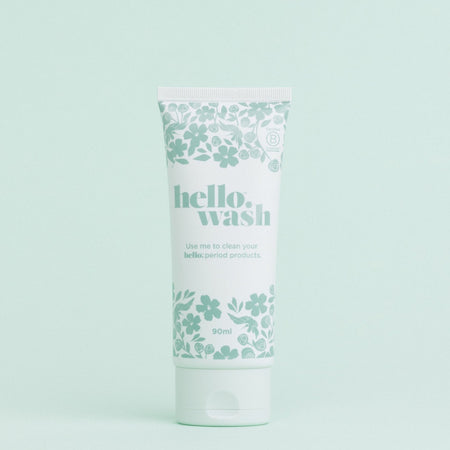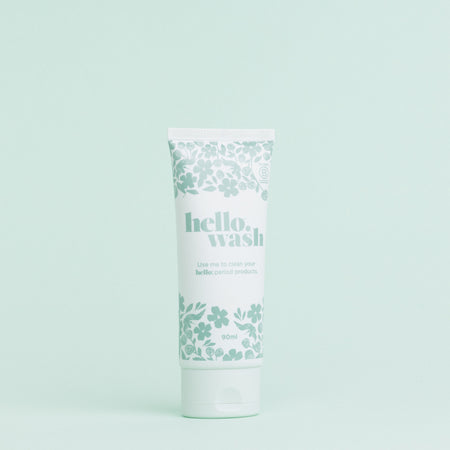When you pick up a box of tampons at the supermarket, chances are you assume they’re safe, right? You’ll often see terms like ‘gynaecologist tested’ or ‘made with care’ but you won’t often find a fully transparent list of ingredients. But two recent studies have blown the lid off the period product industry and it’s time we start asking serious questions and demanding better standards.
Metals and Pesticides Found in Tampons
A few weeks ago, we were disappointed to read another study that found less than ideal ingredients in leading tampon brands in the UK. The report, released by the Pesticide Action Network UK (PAN UK) found traces of glyphosate - a herbicide classified as “probably carcinogenic” by the World Health Organisation - were found in tampons at levels 40 times higher than the legal limit for drinking water.
Our hearts sank because it was more evidence of the lack of regulation and care given to the menstruation industry. A product designed to sit inside the most absorbent and vulnerable part of your body for hours at a time needs to be safe.
The UK study, which did not specifically name the brands they tested, follows a study from 2024 by researchers at the University of California, Berkeley which found detectable levels of toxic metals - including lead, arsenic, and cadmium - in multiple brands of tampons sold in the U.S. and Europe. These metals were found in both organic and non-organic products, suggesting contamination may come from the manufacturing process, packaging, or even the cotton growing conditions.

Should We Panic?
Both studies didn’t necessarily surprise us at Hello Period, but they do make us feel frustrated and sad. However, it's also important that studies like these are viewed with some caution because we still need more information. We hope the studies provide a springboard to fast track more work and investigation - especially when it comes to the potential impact (if any) these metals (some of which are also commonly found in food and water) and pesticide traces might have on the wearer of the tampon.
To be clear, we are in no way trying to diminish these findings but we also don’t want to encourage panic. What we do want to encourage is consumers feeling empowered to make informed period care choices and demand that manufacturers are transparent about their processes and ingredients.
Scientists and advocacy groups are still not 100% sure what these levels mean for long-term health. That’s because there’s a staggering lack of research into how chemicals behave when absorbed vaginally. Unlike eating or inhaling a substance (where our bodies have filtration systems like the liver and lungs), the vagina is a direct pathway to the bloodstream, meaning even trace amounts of toxins could potentially cause harm.
These studies don’t mean every tampon is dangerous but they do highlight how little we actually know. And that should be enough to demand change.
The Real Issue: A Lack of Regulation
The period care industry is shockingly under-regulated. In many countries, the way tampons and pads are classified often means companies aren’t required to fully disclose ingredients or undergo rigorous safety testing.
Unlike food and cosmetics, which are legally required to list ingredients and meet strict safety standards, tampon manufacturers can include synthetic fibres, fragrances, dyes, bleaches, and even toxic adhesives, all without listing them on the box. And most people have no idea.
It’s not just about what’s added to tampons, either - it’s also about how they’re grown and processed. Cotton, the primary ingredient in many pads and tampons, is one of the most pesticide-heavy crops in the world. If that cotton isn’t organically grown or rigorously cleaned, it could be carrying traces of chemicals straight into your body. And let’s not forget, even the organic tampons tested in the US study contained metals - most likely absorbed from contaminated soil.
Why We Say Reusables are often a Safer, Smarter Option
This is where reusable period products shine. Most brands that make menstrual cups, discs, reusable pads, and period underwear tend to prioritise material transparency.
Take the Hello Disc, for example — made from German-engineered silicone that meets USP Class VI and ISO 10993 standards, the same used in long-term medical implants. That means it’s been rigorously tested for toxicity, irritation, and long-term safety inside the body — not just “technically medical grade,” but actually safe to be worn INSIDE the body (some silicone can be described as medical grade but is certified only for external use).
However, all that said, like most industries we are seeing brands coming in trying to cut corners in this space too. Again, it’s disappointing and until better regulations come in it will keep happening. If something is cheap, there’s often a reason why. Trust us when we say that your vagina deserves quality.
Hello Period was founded because we wanted better, safer period care options for our daughters. We’re not going to be the cheapest but we will be honest about our processes, materials and mission.

What Needs to Happen Next?
These studies are a wake-up call not just for consumers, but for governments, brands, and the scientific community. Here’s what we need to see:
- Full ingredient transparency on all period care products
- More research on vaginal absorption and chemical exposure
- Stricter regulations for period care and manufacturing standards, especially tampons
- Support for quality reusable options in public health policies, schools, and communities
- Because period care isn’t just a consumer issue, it’s a public health one.
Our Advice
- Choose brands like Hello Period that disclose ingredients openly
- Make the switch to quality reusable options such as the Hello Disc, Hello Cup or Hello Undies.
- Support petitions and policy changes for better regulation
